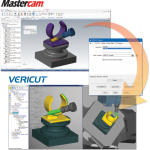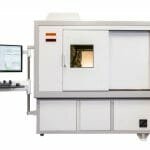PSL Datatrack production control software incorporates five core modules for financial control. Invoicing, Credit Notes, Purchase Invoicing, Job Costing and Multi-Currency are all optional and functions such as valuing the outstanding order book, monitoring invoicing trends and stock valuations are also available.
From a sales point of view the system allows quick and easy invoicing of delivered items using relevant information from the Deliveries and Works Orders modules. There is also a manual invoicing facility for non-manufactured products, for example selling on a used machine or invoicing your energy company for electricity generated from solar panels on your building roof.
The invoicing wizard utility means large scale invoicing can be done automatically in seconds and all invoicing data can be imported to many popular accounting systems, preventing the need to re-enter any information. We appreciate the desire to use preferred software for accounting functions whilst leaving the management of manufacturing to a dedicated, purpose-designed production control system.
Hopefully there won’t be too many but credit notes can also be produced in the system, either manually to satisfy any agreement reached with your customer or from a works order where the need results directly from a customer reject. Credit notes can be exported to accounts software in the same manner as invoices and a PSL Datatrack report lists all credit notes produced for a selected period with a subtotal for each customer.
On the flip side, the Purchase Invoicing module allows users to reconcile back to the original purchase order to validate supplier invoices and ensure that only the right goods at the right price and in the right quantities are paid for. Purchase Invoicing pulls information from Purchase Orders and Goods Received, so again the user does not need to re-key any details already stored in the purchasing modules. Users can generate an instant purchase invoicing valuation at the end of every month, listing goods that have been received but not yet invoiced. Purchase Invoicing comes with its own reporting benefits, including analysis into what you’ve spent with each of your suppliers.
Post-sales and purchase invoicing, accurate costing reviews can be undertaken through utilisation of the Job Costing module which, installed alongside purchasing modules and Shop Floor Data Collection (SFDC) enables you to evaluate all commercial elements of a works order, including the process, material, tooling and any subcontract services used. A Details report shows all the information displayed on the screen but also subtotals each operation, so in addition to the analysis of each operation you can also see the total time spent on each one.
Job Costing’s links with the purchasing modules and SFDC means that non-profitable jobs can be recognised easily, without eating into valuable production hours. Any process deviations can be reviewed and reasons for them defined. The information can then be used to update the quotation and/or process layout so the job runs more efficiently if or when it repeats.
PSL Datatrack is typically run with sterling as its core currency but can actually run with any currency as its base. All others are classed as foreign and handled with an exchange rate, which can be updated by the user as trends change. Whatever currency the businesses you trade with work in, the system automatically performs all necessary conversions.
The overriding benefit of PSL Datatrack’s Financial modules is that those not involved in accounts can still get a monetary overview from the system. Who can see what/run certain reports is determined by their access rights set in User Maintenance, allowing management or business owners to keep the entire business at their fingertips.





